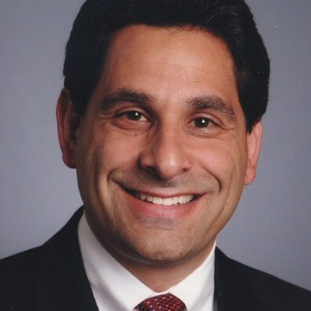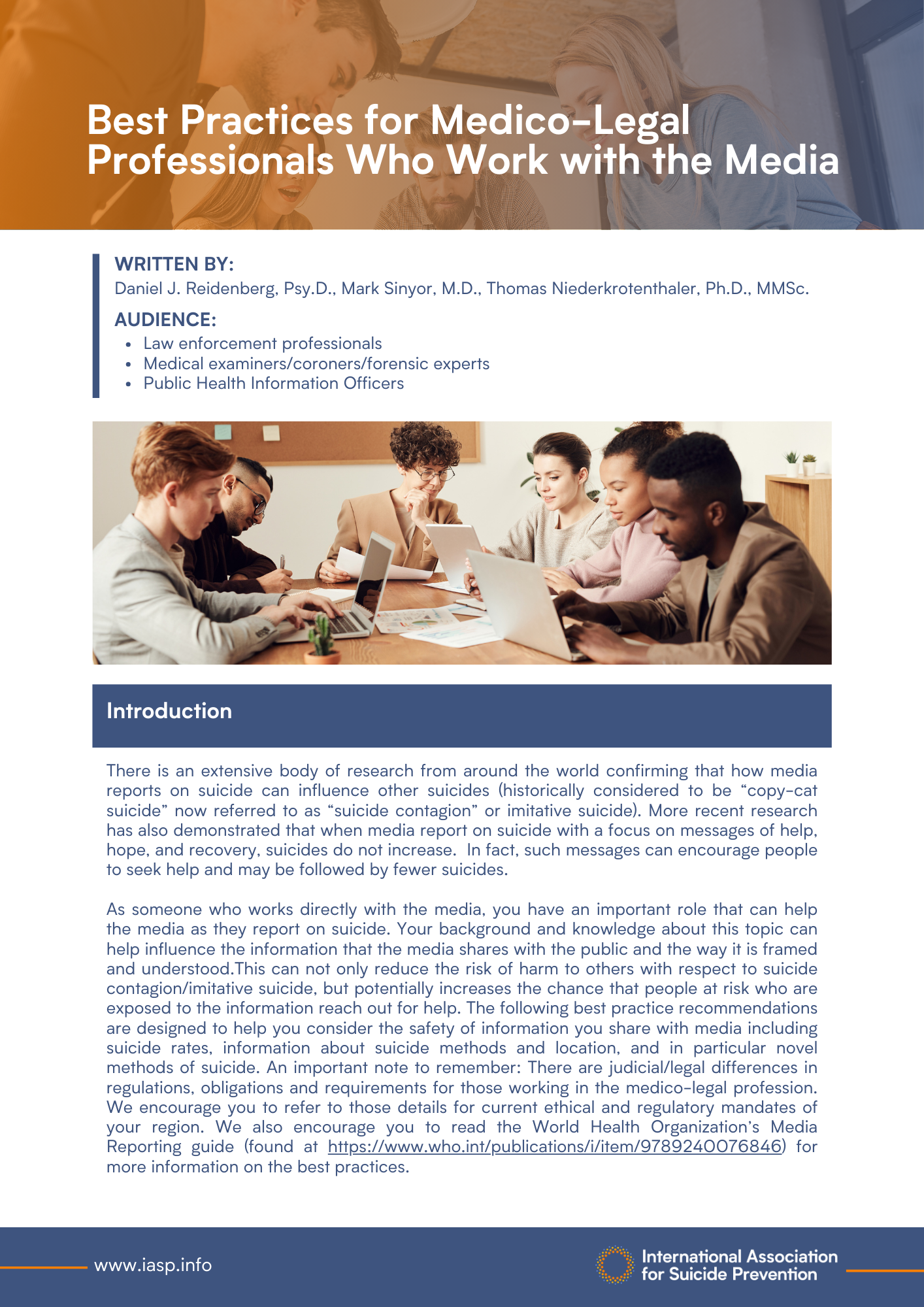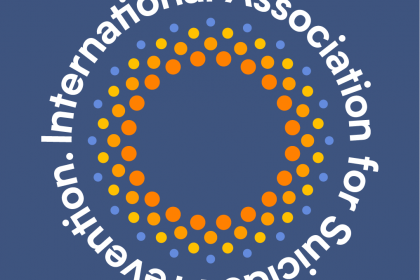CO-CHAIRS:
Media-related suicide contagion sometimes referred to as “Werther effect” or copycat behaviour, is a significant public health problem. In recent years, most countries which have developed national suicide prevention strategies have included the development of guidelines that have attempted to promote accurate, responsible and ethical reporting of suicide in the media.
These guidelines have arisen from a substantial body of evidence that suggests that incautious media reporting and portrayal of suicide has the potential to encourage imitative behaviour among vulnerable individuals. They are designed to promote responsible reporting of suicide, but have sometimes been misinterpreted by media professionals as promoting censorship. Such misunderstandings about these media guidelines have led to reluctance among many journalists to adopt them. There is a need for improved collaboration with media professionals to reach a consensus on this issue. The IASP Suicide and the Media Task Force is taking up this challenge.
Objectives:
- To improve linkages between suicide experts and media professionals.
- To systematically review research about suicide and the traditional as well as social media (including evaluations of media guidelines), to identify gaps in knowledge, to develop a research agenda to address these gaps, and to encourage relevant research.
- To identify, collect and collate media guidelines which have been developed around the world, and examine and report on their content, development and implementation.
- To work collaboratively with media professionals to develop recommendations for developing and implementing media guidelines.
- To work collaboratively with media professionals to promote media guidelines to journalists, editors and other stakeholders.
- To work on prevention of suicide using online media.
- To provide an international body of experts that can provide authoritative comment on issues regarding suicide and the media, including issues surrounding media guidelines and both traditional and newer “emergent” media.
2024 Activities
- We engaged members in the development of the new best practice guidance tool for medical examiners and first responders.
- SIG members were involved in the dissemination of WSPD messaging.
- We organized conference submissions to ESSSB20.
- We will submit proposals for joint symposia for the world conference in Vienna in 2025
2023 Activities
- The SIG chairs and selected members had a call on the spread of novel methods via media based on the controversies around the reporting of a lawsuit in several countries – related to this, and the editorial was published in Crisis; see: Sinyor, M., Fraser, L., Reidenberg, D., Yip, P. S. F., & Niederkrotenthaler, T. (2024). The Kenneth Law media event – A dangerous natural experiment.
- We collaborated on updating and revising the WHO Media Guidelines.
- SIG meetings took place at the IASP 32nd World Congress in Piran.
Best Practices for Medico-Legal Professionals Who Work with the Media
A new set of best practices, “Best Practices for Medico-Legal Professionals Who Work with the Media,” has been released by leading experts Daniel J. Reidenberg, Psy.D., Mark Sinyor, M.D., and Thomas Niederkrotenthaler, Ph.D., MMSc. This comprehensive guide aims to support law enforcement, medical examiners, coroners, forensic experts, and public health information officers in effectively and responsibly working with the media on sensitive issues surrounding suicide.
Drawing from a broad body of international research, the recommendations focus on minimising the risk of suicide contagion (imitative suicide) by providing guidance on the safe handling of information about suicide methods, locations, and data. It emphasises the importance of delivering messages that highlight hope and recovery, thereby potentially reducing suicide rates.
Medico-legal professionals play a key role in shaping public understanding of suicide through their interactions with the media, and this set of best practices is designed to ensure that such communications are safe, ethical, and in line with international standards.
Media Guidelines From Countries
We are looking for people who are interested in working with us to progress this very important work. If you would like to join this SIG, please contact us.






